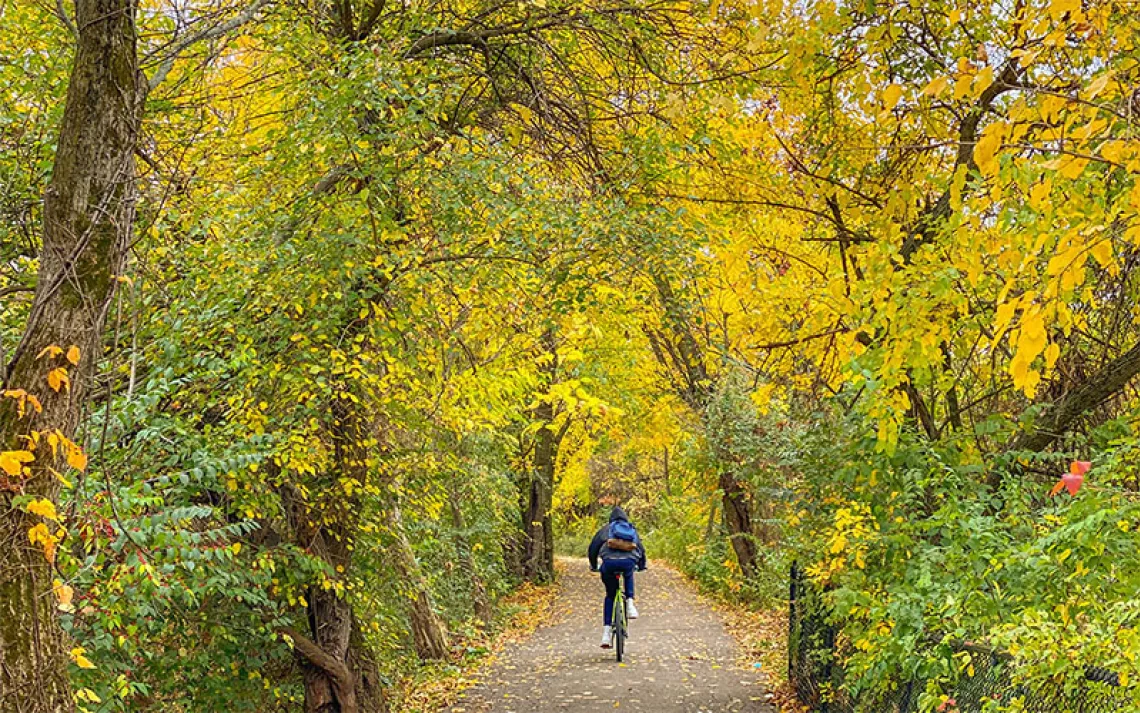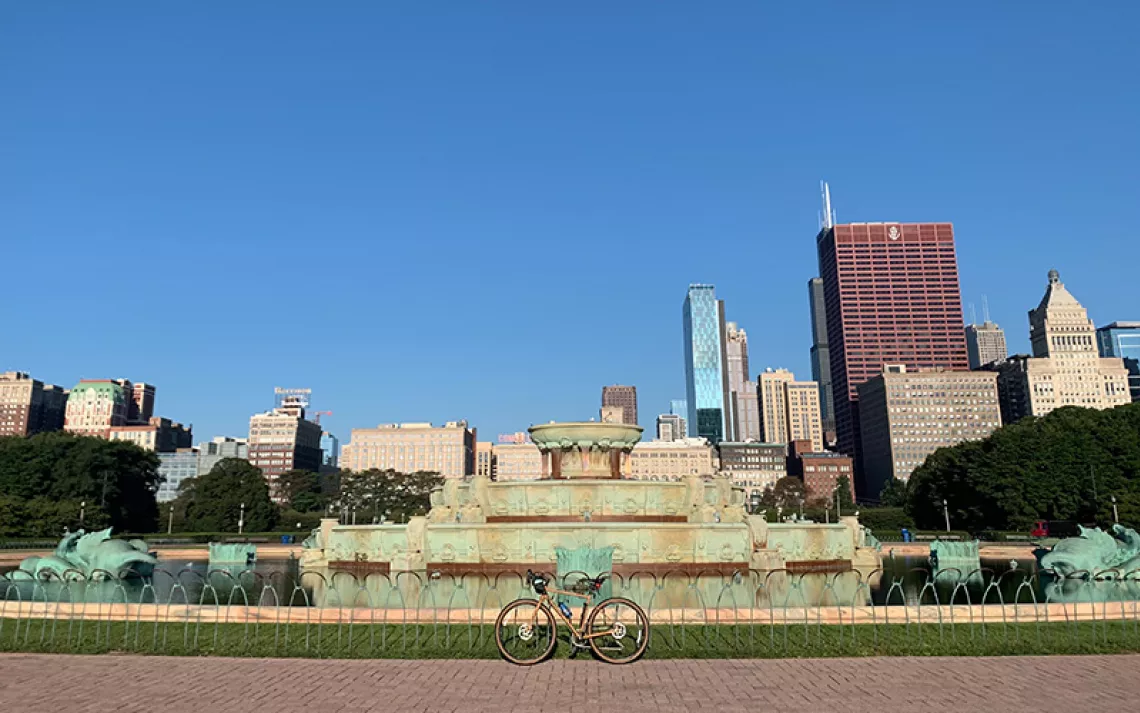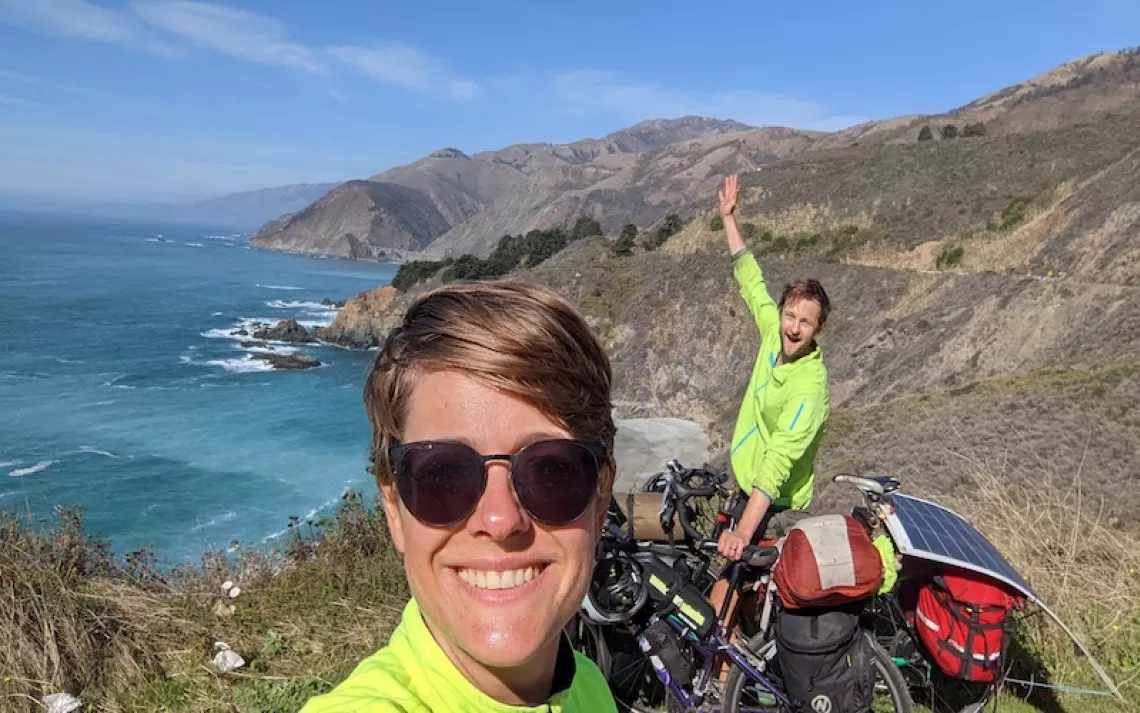Motherload: Ditching the Minivan for a Cargo Bike
The documentary explores the joys of family biking
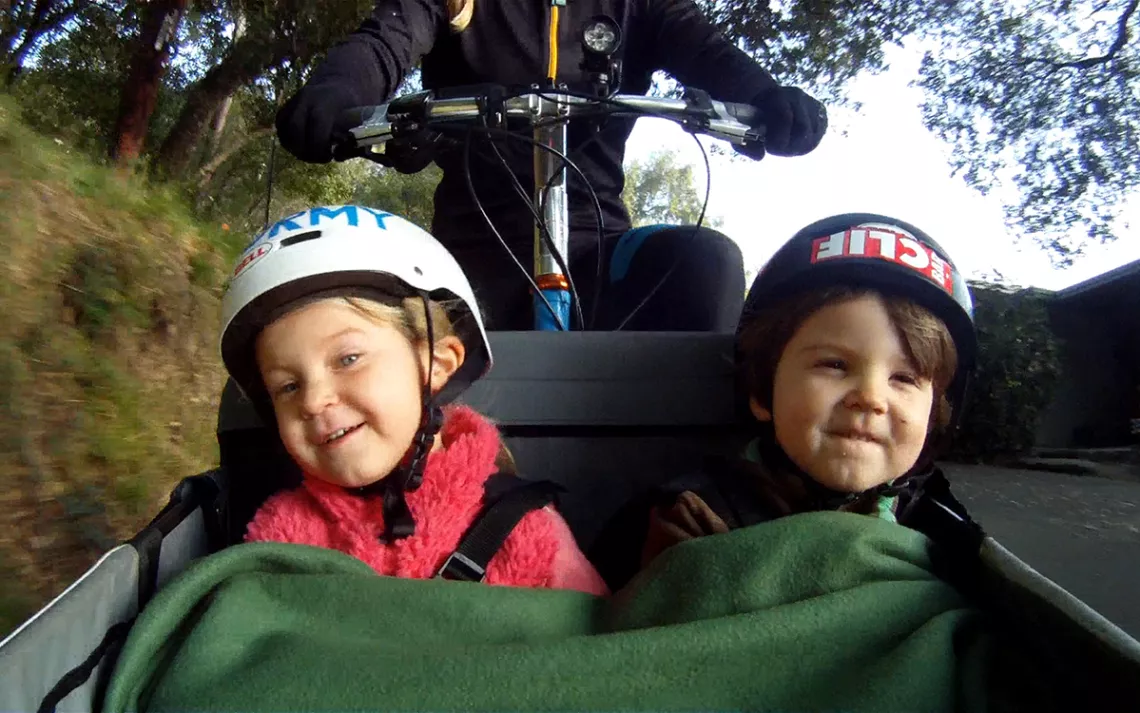
After she had twins, Liz Canning, a filmmaker who lives in the San Francisco Bay Area’s Marin County, felt trapped and isolated. Early on in her documentary film Motherload, now available for rent, we see Canning in the living room, struggling with the Sisyphean task of doing laundry. As she folds piles of tiny clothes, she starts to break down, exhausted by the demands of work and home. “I’m plagued by claustrophobic feelings,” she says to the camera. “My brain is about to explode.”
It surely doesn’t help that Canning, who had been among the sub-one percent of Americans who bike to work, has been transformed into a child-shuttle driver overnight. Among the revealing statistics cited in Motherload is that US mothers spend more time driving than the average parent spends on child care. At first, Canning looks into cargo bikes out of duty, to do her part to stop climate change. But the day she takes the plunge and purchases one, her own life improves dramatically. Her tots are giddy with excitement—“Full speed ahead!” one shouts from the seat in front—as they go on trips for groceries and treats like ice cream. Canning feels a renewed sense of energy by going outside and connecting with people, and answering their questions about her interesting bike setup. “I was outside, moving my body—the perfect antidote to anxiety and depression,” she told Sierra. “The bike turned the endless, mindless errands of parenting into mini-adventures.”
Can the cargo bike—a specialized bicycle designed to transport children and other large loads—finally get us out of our automobiles? In this personal-is-political documentary, it is the vehicle that empowers parents, and particularly mothers, to become the vanguard for a more enlightened, sustainable society.
In Motherload, Canning relates her own experience and offers up other convincing testimonials to demonstrate the financial, physical, and psychological benefits of getting around by bike, especially for young families. The film introduces us to a diverse group of parents and their particular bicycle configurations. We meet Stacy Bisker and Brent Patterson, the parents of four kids, who ditched their car partly to cut costs; they soldier on through icy winters with a cargo bike outfitted with a plastic canopy after moving to Buffalo, New York. In car-centric Los Angeles, Josef Bray-Ali doesn’t make much money as the owner of a bike shop, but his bakfiets (“box bike”) from the Netherlands provides a high quality of life for himself and his daughter. The documentary also provides a window into a global community that relies on cargo bikes not just to transport children, but also to plant trees, take seniors on outings, and carry emergency supplies. Canning crowd-sourced much of the content in the film, enabling her to use footage from locations around the world without the cost (or carbon emissions) of having to travel. Crowd-funding helped her finance the production. “I have felt since it began that the project was pulling me along for the ride,” she told Sierra.
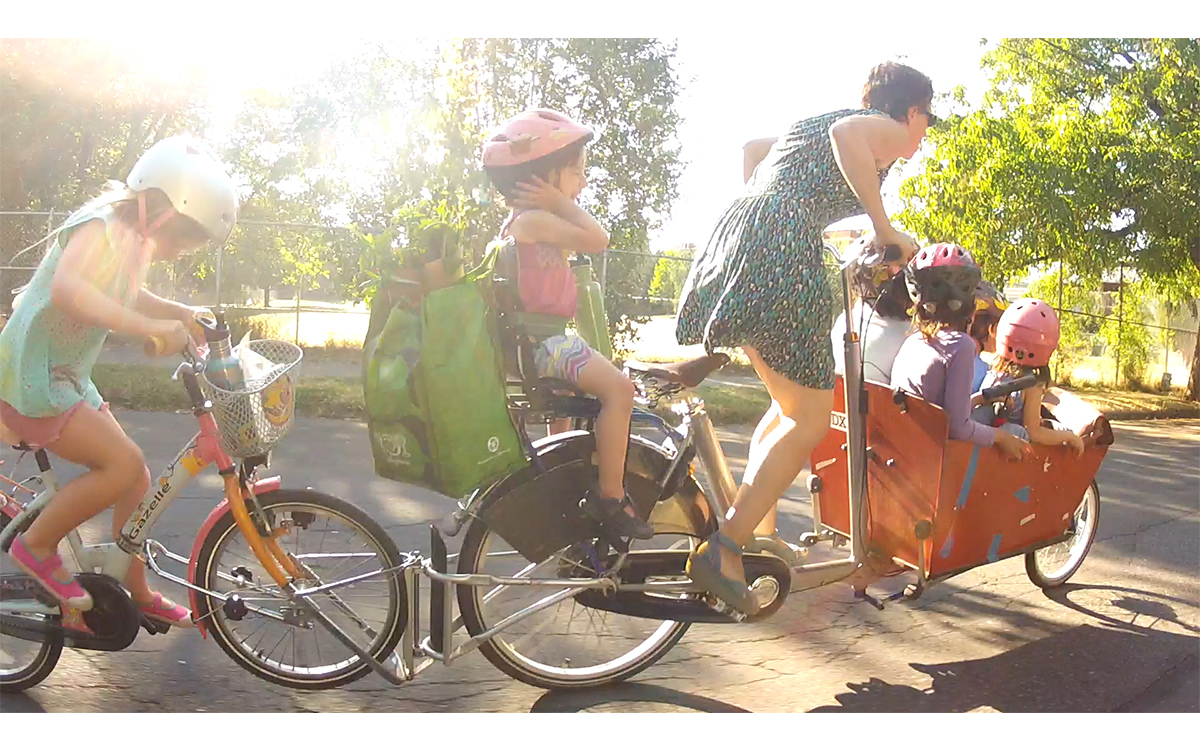
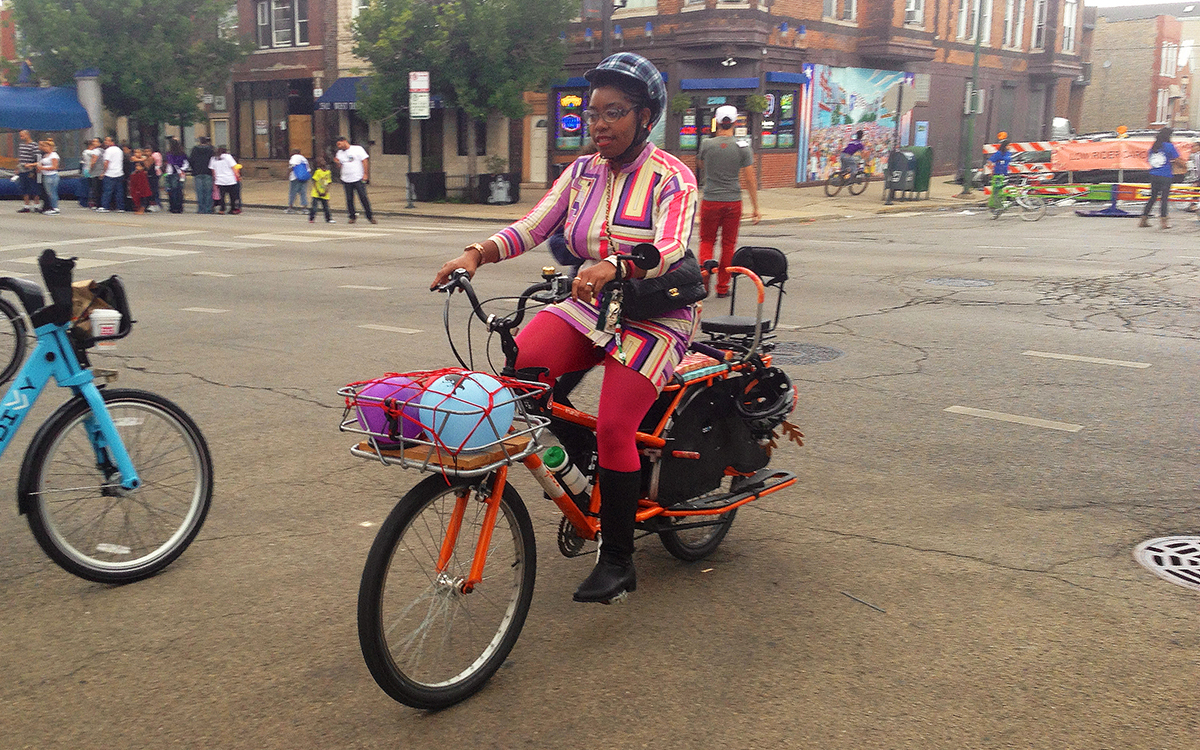
Motherload pays respect to the bicycle’s early role as an equalizing force for women and the working class and explores the recent evolution of cargo bikes. We learn how, in the late 1990s, the company XtraCycle marketed a kit that converted a standard bicycle into a “longtail” for diehard bicyclists who wanted to haul their kayaks and surfboards. Today’s purpose-built cargo bikes include models that are designed to hold multiple children and have electric motors that supplement human power (a.k.a. “pedal assist”). They are also substantially more expensive, prompting bike stores to offer financing plans. Since early 2019, when the documentary was completed, a few states and cities have begun offering e-bike rebates; California has provided funds to help low-income residents trade in their cars for e-bikes.
Despite the technological improvements in bicycles, the general public continues to be deterred from bicycling because of concerns about road safety. For the most part, the cargo-bike enthusiasts in the film don’t talk about how they’ve negotiated these worries, or what strategies they pursue to improve their safety. But the film’s quick tour of two cities, Portland and Amsterdam, shows how even dense urban environments can be reengineered to welcome bicyclists, and Canning points out that whatever the perceived safety issues are, statistics show that making a trip on bike, car, or foot all carry about the same level of risk.
At the heart of Motherload is an emotional appeal: Dreamy images of roads winding through the redwoods and trails along the golden hillsides of Marin County remind us of the wonders of nature that, depending on where you live, can be experienced by bike. Dave Cohen, a psychotherapist and professional bike advocate in Brattleboro, Vermont, articulates what we are giving up each time we get into a car. “The soundscape has been completely obliterated, certainly the scentscape . . . the automobile restricts and severs all those sensory ties that we have,” he says. There is a visceral pleasure even in being exposed to bad weather. Emily Finch, a bike-mom icon who travels with all six of her children, finds it exhilarating to bike in Portland’s frequent downpours. “Five to 10 minutes into our trip, it’s raining and I’m soaking . . . and I’m thinking, ‘Oh my gosh, I love my life!’” Wouldn’t we all like to have this feeling more often? Motherload shows us that we can.
Note: In addition to on-demand viewing, virtual screenings and live Q&A sessions with director Liz Canning are being held by various organizations. To find a virtual screening, go to motherloadmovie.com/get-involved
 The Magazine of The Sierra Club
The Magazine of The Sierra Club

